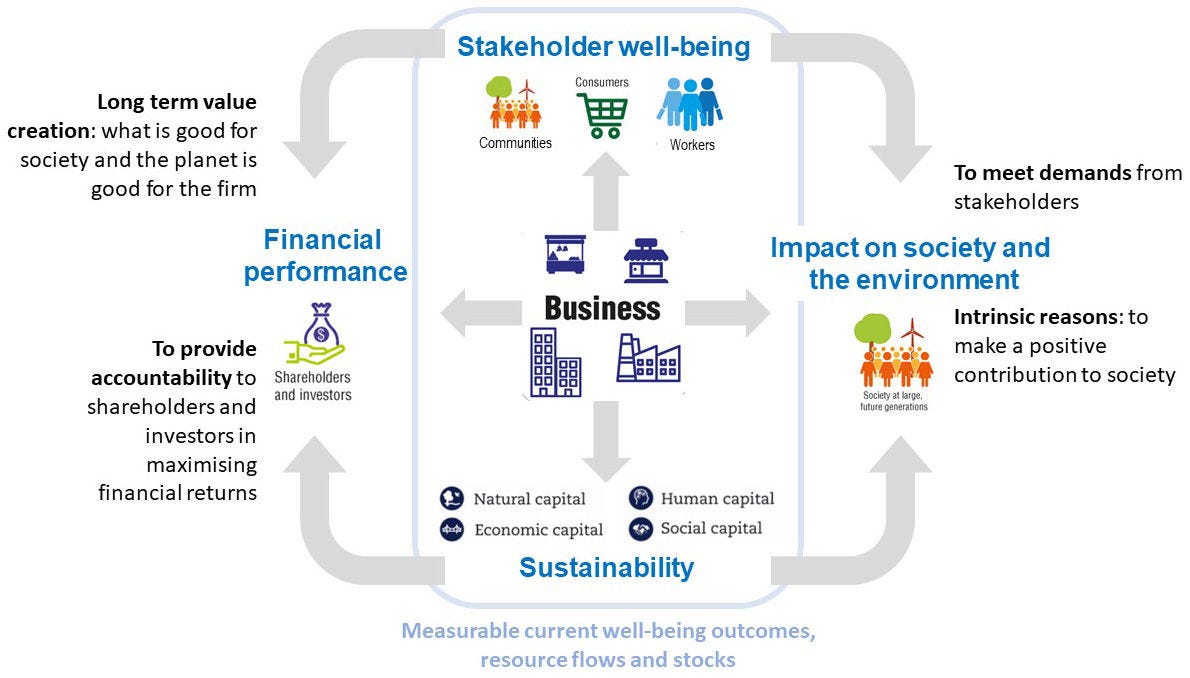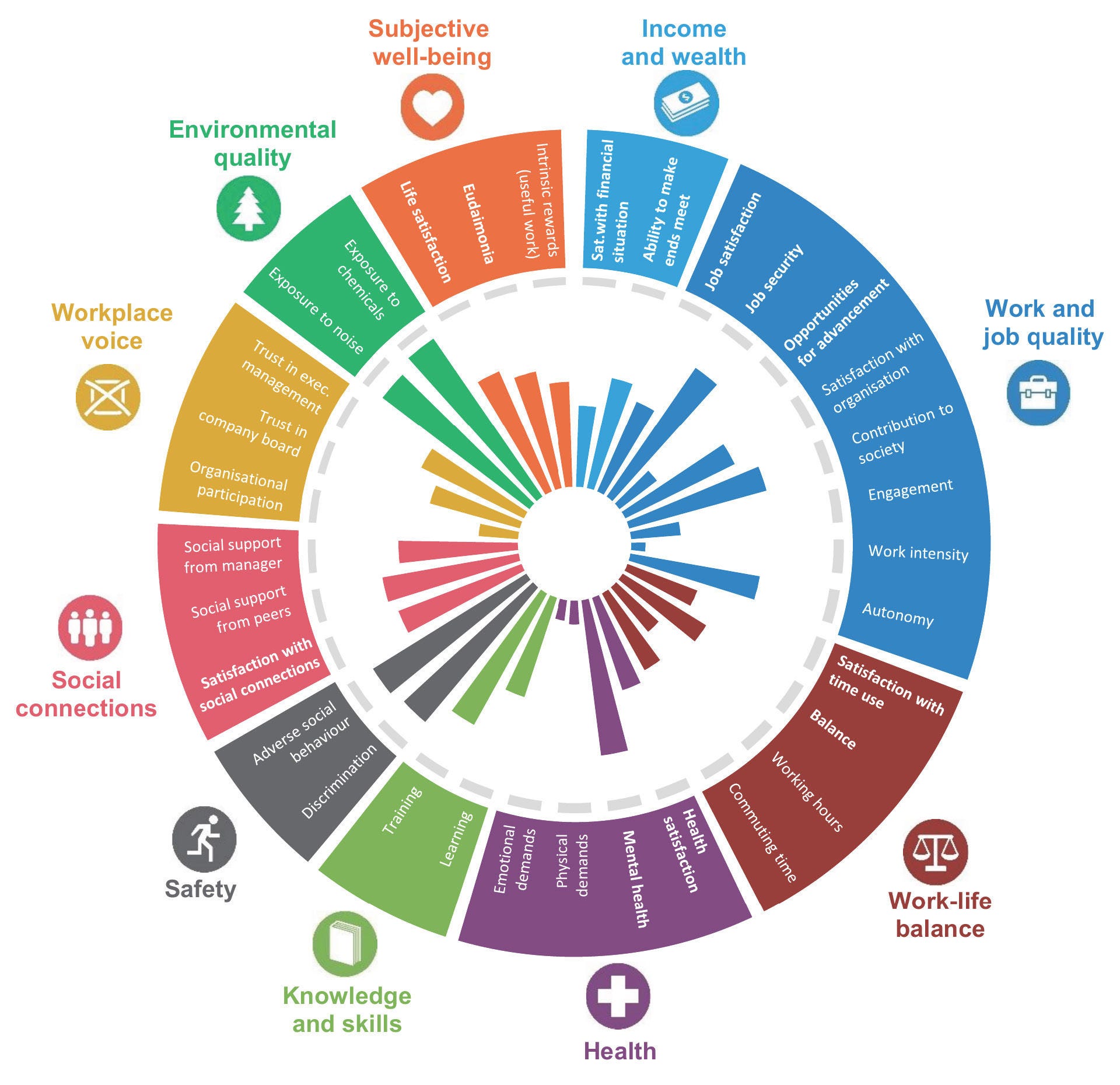In the face of high levels of inequalities, technological change, and the aftershocks of the COVID-19 crisis, policymakers, investors and businesses themselves are seeking a better understanding of the impacts of firms on people and inequalities. The OECD has designed a common framework for social performance that can be used by businesses, and that is aligned with macro-level approaches to measuring well-being and progress used by governments and national statistical offices. The framework looks at impacts on the well-being of employees, consumers, workers in the value chain and societies at large.
Measuring business impacts on people’s well-being and sustainability
Building on the "Beyond GDP" agenda’s work on measuring well-being, the OECD WISE Centre is collaborating with the businesses, investors, standard-setters and policy makers engaged in managing and measuring business impacts on people's well-being and sustainability.
Key links

Key messages
To contribute towards greater harmonisation of the measurement of well-being in companies, the OECD developed a pilot survey of employee well-being. The survey is s based on the OECD Well-being Framework, an internationally-agreed framework for measuring well-being in a multi-dimensional way. The survey addresses a gap in sustainability measurement by measuring people-related outcomes, rather than policies and programmes adopted by companies. Further harmonisation is necessary for improved benchmarking of companies’ social performance.
The OECD has developed a methodology to value business impacts on employee well-being based on a theoretical framework from welfare economics. The methodology assesses the welfare impact of a company’s wage distribution, employment status, and three selected aspects of working conditions: excess working hours, tensions with management, and job insecurity.
Context
Well-being is relevant for all business stakeholders
Well-being is relevant for each group of stakeholders affected by businesses: employees, workers in the value chain, consumers and communities. Managing and measuring the well-being of stakeholders allows companies to meet demands from stakeholders and to contribute to society as a whole. It is also necessary to respond to demands from investors to reduce risks and eliminate negative impacts, and pursue long term value creation. In order to adequately reflect performance, the measurement of social performance needs to capture not only activities, policies and practices, but also people-related outcomes. Well-being indicators can help inform such measurement practices.

Employee well-being wheel
The Employee Well-being wheel summarises employee well-being outcomes in companies, with longer bars showing more positive outcomes. The findings illustrate the complex, multidimensional nature of well-being, and the importance of including a broad spectrum of indicators to capture the range of things that matter to people. The employees surveyed in this Japanese company, for example, face very high emotional and physical demands, along with high levels of work intensity. At the same time, they experience high levels of job security, autonomy and a sense of contributing to society. The OECD’s survey tool can be used to measure employee well-being in a harmonised manner in any company.

Related content
-
The Impact Management Platform is a collaboration between the leading providers of international public good standards, frameworks and guidance for managing impact.Learn more
Related publications
-
 8 June 2023
8 June 2023 -
 Working paper27 January 2022
Working paper27 January 2022 -
 Policy paper27 January 2022
Policy paper27 January 2022 -
 9 November 2018
9 November 2018
Related policy issues
-
Businesses are the engine of the economy – they shape our planet, the way we work, produce, consume and live. The OECD works with the private sector and governments sharing data, analysis, recommendations and global standards to help implement policies that create more sustainable, green and inclusive businesses across supply chains. The goal is to encourage long-term value creation for all, inclusive societies and sustainable natural resources. Businesses of all sizes can become powerful drivers for achieving the Sustainable Development Goals (SDGs).Learn more
-
To understand whether policies are improving lives we need to look "beyond GDP" and consider a broader range of economic, social and environmental outcomes for people. This also allows to understand what matters to people and what drives their behaviours, providing another channel of action to policies. The OECD is leading efforts to develop indicators that measure the well-being of individuals, families, society, future generations and the planet at a time of deep changes and transformations.Learn more
